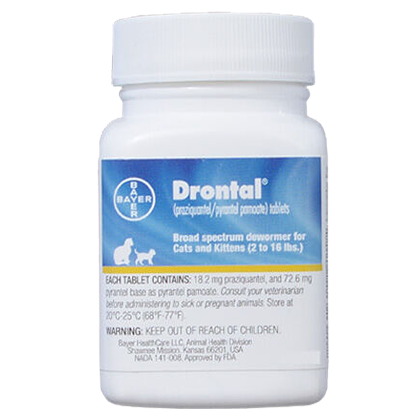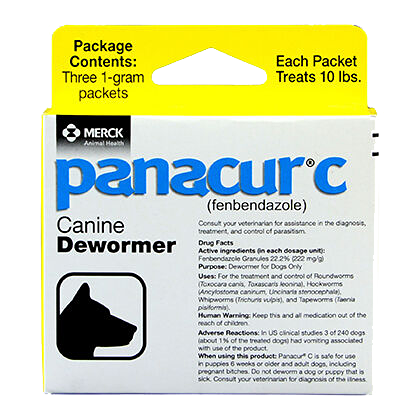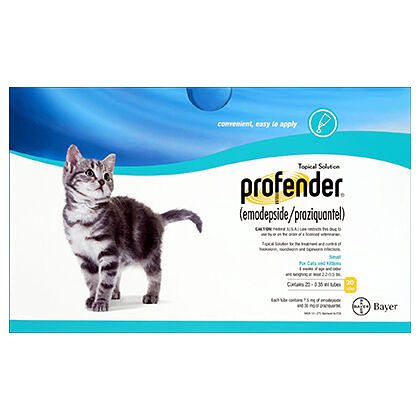Dewormers for Pets
What are intestinal parasites in dogs and cats?
These parasites feed on dogs and cats, indoors or out, and they can even attack humans.
Worms are parasites that usually live in the gastrointestinal tract, though they can travel through the bloodstream and take over other parts of the body as well.
Virtually all dogs and cats will have worms at some point, and many will have multiple parasitic infections throughout their lifetime. Fortunately, worms are treatable and can be prevented by using dewormers regularly.
Roundworms are the most common intestinal parasite that affects dogs and cats. In fact, the majority of puppies and kittens are born with them or contract them soon after birth. Mother animals commonly have low levels of dormant roundworms that are activated by hormones during pregnancy. Roundworms can pass from the mother's bloodstream to the placentas, or may be contracted via her milk during nursing.
Whipworms, as well as roundworms and hookworms, reproduce by laying eggs that their host will pass in their feces. Cats and dogs can contract worms by walking over soil where an infected animal has defecated and later licking their paws and ingesting parasitic eggs.
Dogs and cats can contract tapeworms when they're attacked by fleas that carry tapeworm eggs. Pets can ingest infected fleas when they groom or lick itchy, irritated skin.
Puppies and kittens have an immune system that is not yet fully developed, so they're especially vulnerable to symptomatic parasitic infections. Worms feed off the host's blood and nutrients, leaving the puppy or kitten hungry, malnourished, and lethargic. Those with a high parasitic load will often have a pot-bellied appearance.
But not all parasitic infections are symptomatic. Some pets will have a low parasitic load for years with no noticeable symptoms, and others will only become ill after weeks or months after infection.
Dogs and cats with worms sometimes vomit or defecate visible worms, larvae, or eggs. However, worm eggs are often microscopic. Worms in vomit or feces are typically a sign of a high parasitic load, or may only appear once they've died off, after the pet has been given a dewormer.
Why Using Dewormers is Essential
All pets can contract worms, including indoor cats. Many parasitic infections are asymptomatic but can be detected through a fecal test.
Healthy, adult dogs and cats should be tested yearly during their annual wellness exam, while puppies and kittens and animals being treated for worms should be tested before and after administering a dewormer or as recommended by your veterinarian.
Deworm your pet regularly to help:
- Promote proper growth in puppies and kittens
- Prevent nutritional depletion, pneumonia, and anemia
- Protect pets from potentially life-threatening parasitic infection
- Avoid spread of worms to human family members
- Ensure health and safety of all household pets
Ask your veterinarian about the recommended deworming schedule for your pet. Puppies and kittens are usually dewormed several times during their first year of life, while adult pets can be given a monthly heartworm preventative that eliminates multiple types of internal parasites.
Prevent and Treat Parasitic Infections
PetMeds® carries over-the-counter dewormers, at-home testing, and prescription heartworm prevention to help your pets stay healthy and worm-free. Save time and money when you have your pet's health essentials delivered to your doorstep.
Never Miss A Dose With PetMeds® AutoShip
Save 35% OFF your first AutoShip order | Use code SAVE35 in cartFrequently Asked Questions about Intestinal Worms and Dewormers for Pets
I have another question about dewormers for pets! Learn more with our free Pet Health Advice resource center or talk to your vet at your pet's next visit.










































